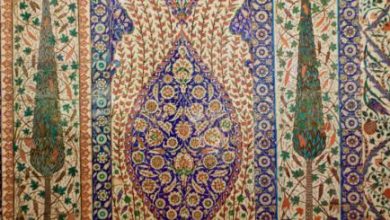MARRIAGE: BETWEEN MIRAGE, REALITY AND RESPONSIBILITY

Goal v necessity
True love does not come with candle lit dinners and romantic holidays. The love that endures is the one where one partner loves the other so much such that he wants to guide his partner towards everlasting happiness in the hereafter. The love that does not end is the love of the spouse’s soul and goodness, such that even if the physical form deteriorates over time, the ravages of childbirth, age and illnesses, the love is strong.
Any love story, no matter how beautiful, will end, because we will die. True love in marriage is not one of passion and adventure: the ultimate love in a marriage is the love of mercy and compassion. A love in marriage is not obsessive, it is one where things are kept on an even keel, and where all aspects of the married life are moulded in the way of life, mannerism and actions which are pleasing to Allah.
Many couples are now willing to compromise religious values and their lifestyles for the sake of love. This is especially predominant where one of the spouses does not come from a Muslim background or upbringing, but the other spouse agrees to the marriage anyway, either ignoring the glaring issues or in the hopes that things will get sorted out along the way. It then comes as no surprise that if one spouse, after years of living in disregard of Islamic principles, decides to turn back towards Allah, the other spouse will be rebellious and resistant to follow suit. Fights and bitterness will follow, and again, this is due to the fact that there was no compatibility of principles to begin with.
The fundamental reality is that when a couple love each other it should be for the sake of Allah.
In the early days if Islam, our predecessors had successful marriages because their criteria was the faith of their spouses in their Creator. Marriages were based on the ability of the other spouse to observe the edicts of Islam. As mentioned in an earlier article, the pious men of the early days married their daughters to those who were strong believers in preference over rulers and princes, in order that their daughters’ faith and journey to jannah remain uncompromised.
The integrity of character overrode all other material aspects which are so predominant in the choice of spouses today. Our predecessors understood that if a person has fear and respect of his Creator, other aspects of his behavior towards his family and society would follow suit. A successful career, beautiful physical features and an abundance of income never even factored into the equation. Their eyes were on a higher goal.
How many people have strength of character, humility and all other aspects of behavior encouraged by the sunnah, only to be rejected on the grounds of looks and income? How many people mistakenly think that a string of degrees would buy their daughters more happiness than an appreciative husband who understands and implements his role in the Islamic household? How many parents would be too embarrassed to permit the union between their child and someone who does not have a high status in society, but has all the per requisites of a suitable Islamic spouse, and yet would willingly entrust their daughter’s fate to the hands of a ill mannered millionaire twice her age?
Principle v Desire
To those who make their own choices when picking a spouse, how many of those choices are made with an Islamic goal in mind? Is attraction based on physical appearances, or some other characteristic or talent which is irrelevant to Islam? In a checklist of ten points, how many of these relate to a person’s Islam and manner, and how many are instead related to the type of career, the ability to have a good time, the popularity and the overall physical chemistry? Such being the criteria, would the result be a marriage upon which Allah will descend tranquility over the couple?
Time and time again, marriages are based on the goals of desire and dunia. Unlike the early days where lack of adab (good behaviour) and iman (faith) would have been deal breakers in the selection process, beauty or an impressive high flying job are now sufficient compensating factors for the lack of Islam in their hearts and lives. A person’s connection with Allah is not even a relevant factor, as many mistakenly believe that the wealth, good looks and connections of the spouse are sufficient to provide everlasting happiness and security.
Such being the case, the marriage will hardly be able to survive a crisis. Those whose love is generated by looks will lose interest when the beauty fades, those who marry for wealth will not be able to sustain in times of financial crisis. Repeatedly, those who marry for the sake of dunia will find themselves short changed in respect of long term happiness.
Consider if the marriage will generate a legacy on earth, in the kingdom of Allah and the history of mankind? Invest in books about marriage in Islam, duties of husband and wife, and manner, but understand what your own role is first before you look at the role of your future spouse.
Think of the amount of effort we make to please our professors or bosses. Think of how much emphasis we place on bank statement and how happy we feel when our balance goes up. Do we think about death and our accountability in respect of our role in society? Similarly, what about our family, future children and society? Think.




